Private celebrity chef Brooke Baevsky grew up in a family with almost “every allergy under the sun.” The chef and entrepreneur, who is known as simply Chef Bae to her hundreds of thousands of social media followers, said in an interview with Voyage LA last year that her mom is celiac and dairy-free and her brother has a peanut allergy, while she is allergic to soy.
Brooke Baevsky
Because of all of these dietary requirements, she has become a pro at recipe development, and now cooks for more than 40 celebrities in both New York City and Los Angeles. But, of course, Baevsky also cooks for herself. She recently told The Chalkboard that her kitchen is filled with plant-based ingredients, including dairy-free cheese, plant-based milk, Monty’s Original Cloud Cream Cheese (the chef has a partnership with the vegan brand), tahini, and pumfu.
According to Baevsky, the discovery of pumfu, which is essentially a type of tofu made with pumpkin seeds, changed her life, given that she’s allergic to soy. The chef isn’t alone—research suggests that of the 32 million Americans who have food allergies, around 1.9 million are allergic to soy. For those who prefer to follow a plant-based or plant-forward diet, this can present a problem, given that tofu is a popular source of plant-based protein. But as Baevsky now knows, pumfu is a great high-protein alternative.
Table of Contents
What is pumfu and is it healthy?
While soy tofu, which is made from curdled soy milk, is the most common version of the ingredient, soy-free tofu is far from new. In fact, in Burmese cuisine, tofu made from chickpeas and water has long been a staple food. It’s also possible to make tofu from fava beans, as well as pumpkin seeds.
When it’s made with pumpkin seeds, tofu is often nicknamed “pumfu.” It is possible to buy it from brands like Foodies, for example, but you can also make it from home. This involves soaking hulled pumpkin seeds, blending them into milk, and then curdling the liquid over heat (you can find out more about how to make pumfu from Mary’s Test Kitchen here).
Just like tofu, pumfu is a nutritious addition to a plant-forward diet. In fact, it contains even more protein than the soy-based alternative. One serving of Foodies’ Original Pumfu, for example, contains around 17 grams, while one serving of tofu contains around 8 grams. Pumfu also contains fiber and healthy fats and contains no added sugar or salt. It does appear to be high in saturated fat, however, according to the Environmental Working Group, so it’s important to enjoy it in moderation.
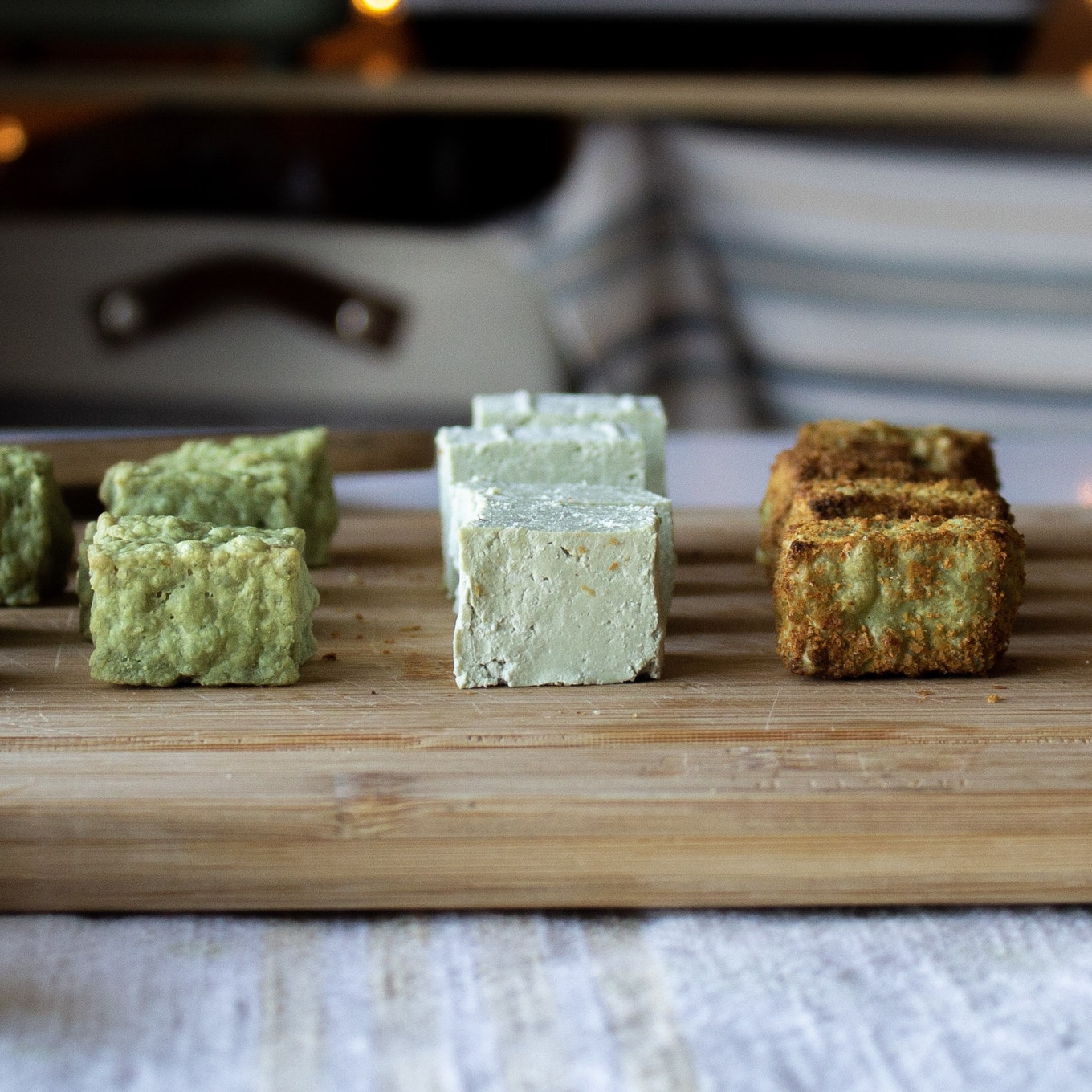 Mary’s Test Kitchen
Mary’s Test Kitchen
Is plant-based protein better than animal protein?
Baevsky seems to follow a plant-heavy diet, but she isn’t vegan. The chef also told The Chalkboard that her go-to proteins include wild-caught salmon, free-range chicken, and grass-fed, grass-finished beef. However, while most experts agree that animal products do contain plenty of protein, they also come with some downsides.
“While the overall protein intake might be sufficient, it is very common for people to rely heavily on animal sources for protein,” Wan Na Chun, MPH, RD, CPT told VegNews recently. “This can lead to potential issues like consuming excess saturated fat and neglecting other essential nutrients like fiber found more readily in plant-based protein sources.”
Beef is high in saturated fat, even when it’s grass-fed. And if you’re choosing grass-fed for the environment, we also have bad news. Many experts believe that cow farming, regardless of type, is detrimental to the planet. “Rising animal production and consumption, whatever the farming system and animal type, is causing damaging greenhouse gas release and contributing to changes in land use,” Tara Garnett, PhD, of The Food Climate Research Network, told the University of Oxford in 2018.
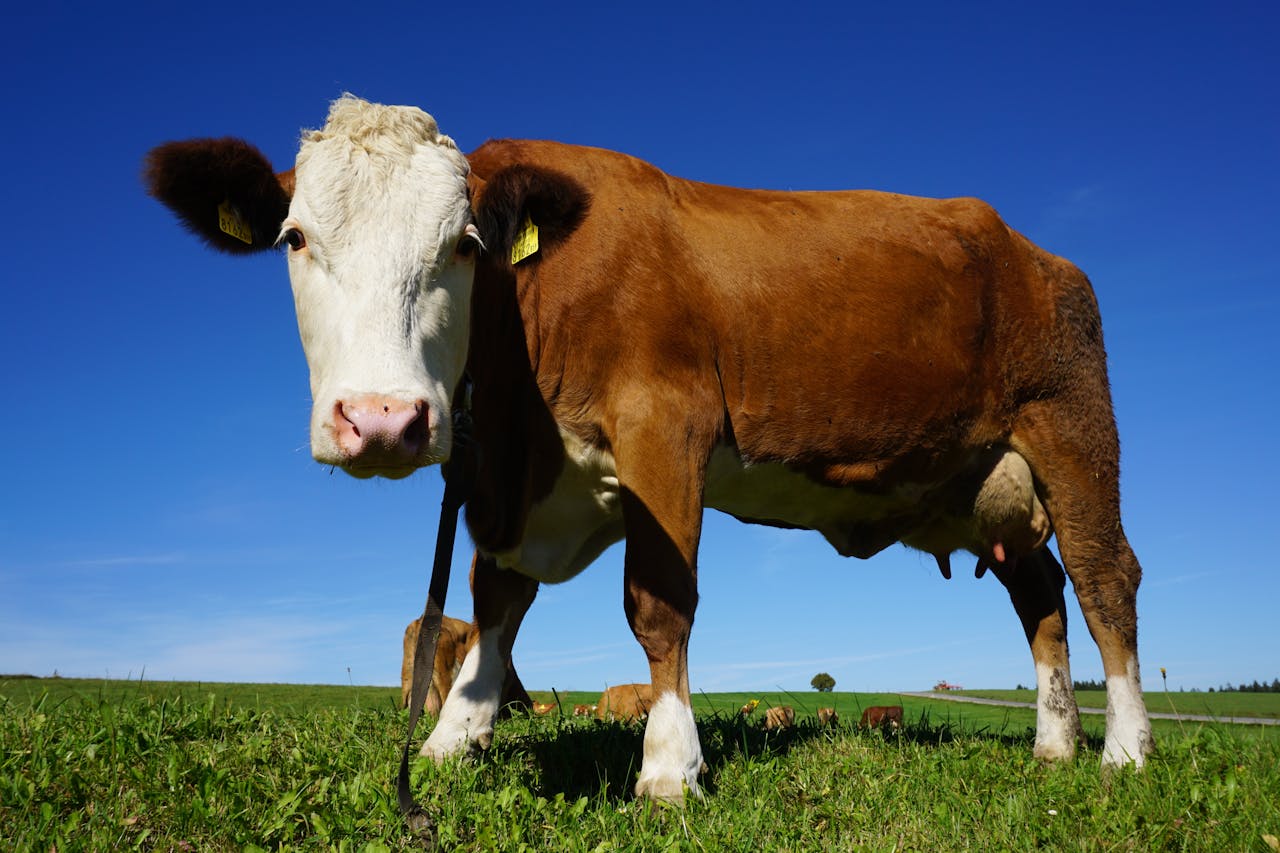 Unsplash
Unsplash
Grass-fed beef is also a contentious animal welfare topic—many believe that the label misleads consumers to believe that the product is more ethical than it is. Grass-fed or not, most cows in the beef trade die well before the end of their natural life expectancy, around the age of four.
There are similar issues with free-range chicken. “Consumers should understand that most animal products originate from systems that prioritize profit over animal welfare,” Monica Chen, Executive Director of the New Roots Institute, told VegNews last year. “Even terms like ‘free-range’ or ‘organic’ do not address the fundamental issue of exploiting animals for food.”
In contrast, plant-based foods are not sentient, don’t need to be raised in factory farm conditions, are better for the planet, and are packed with beneficial nutrients. So if you choose to follow Baevsky’s lead, we recommend you keep the pumfu and lose the beef.
For more about vegan protein, read:
Here at VegNews, we live and breathe the vegan lifestyle, and only recommend products we feel make our lives amazing. Occasionally, articles may include shopping links where we might earn a small commission. In no way does this effect the editorial integrity of VegNews.

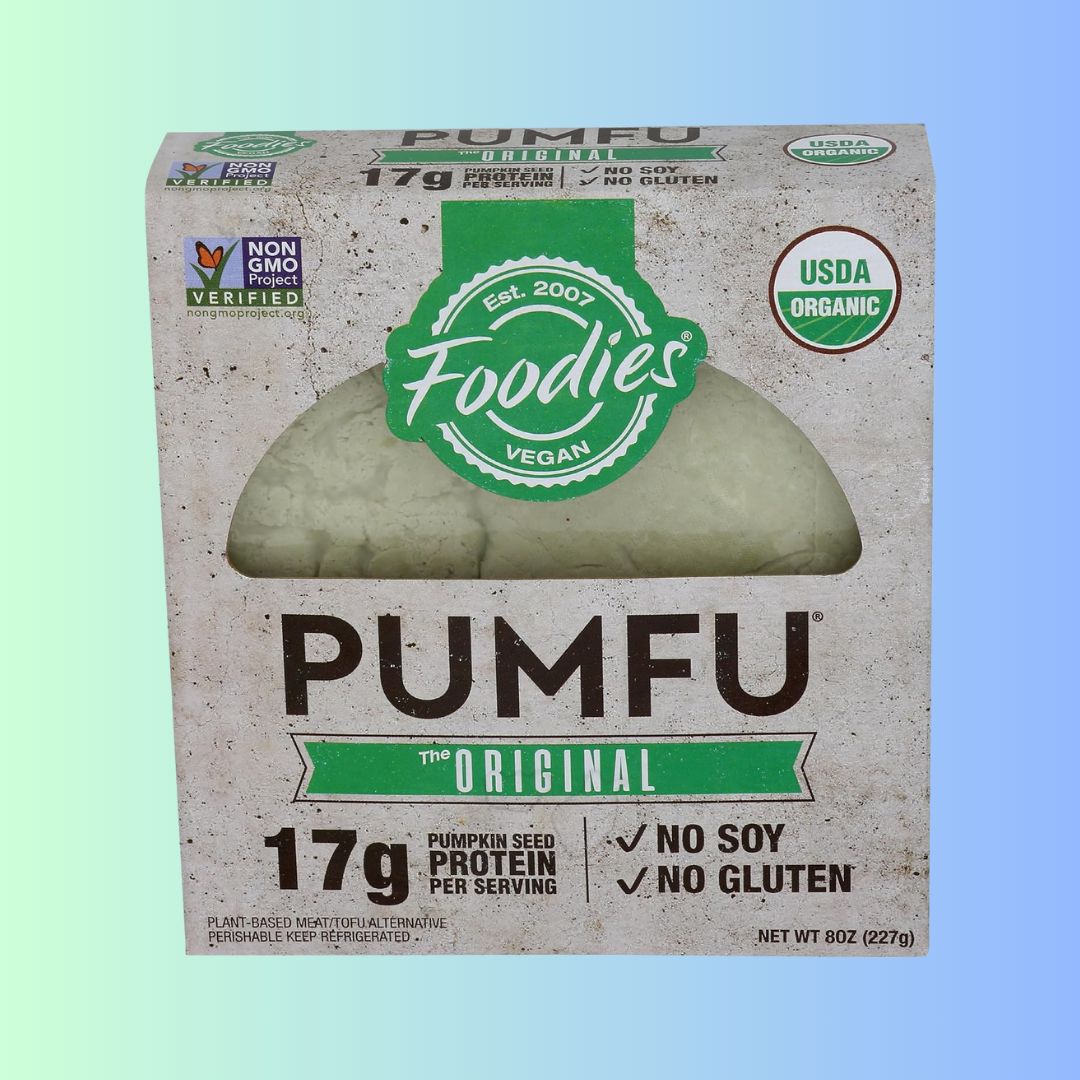


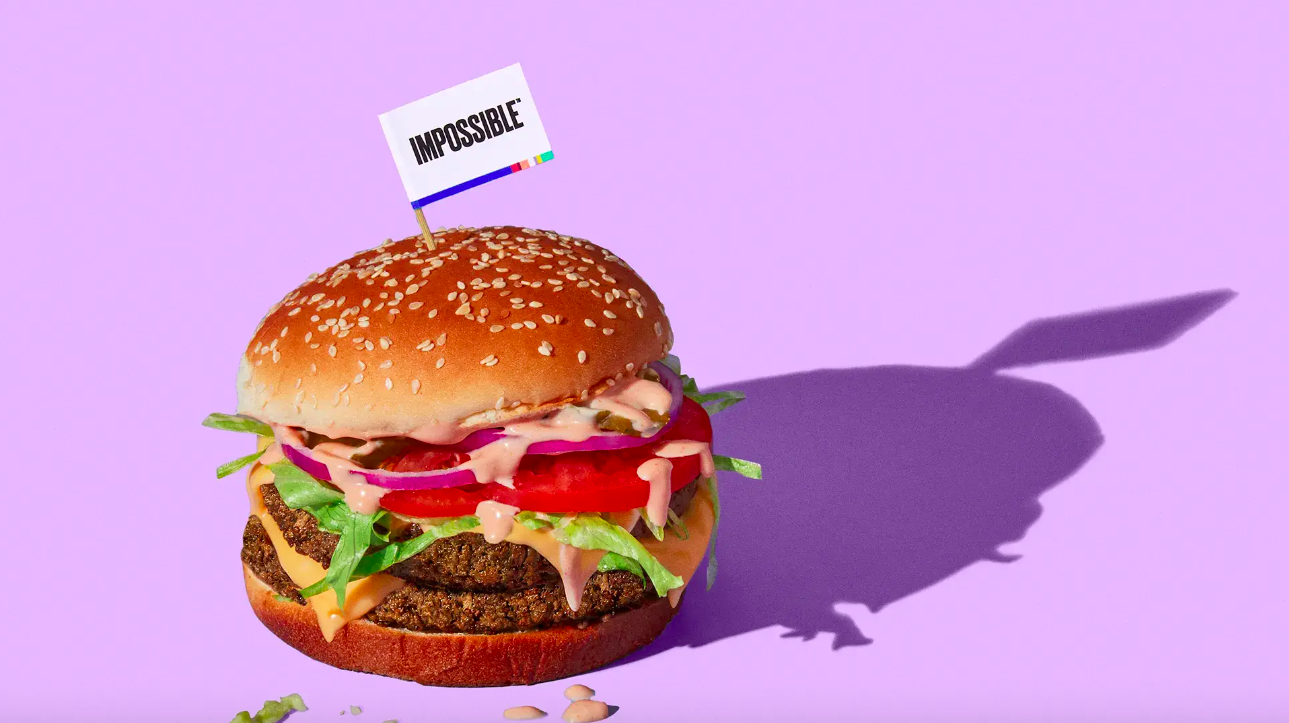
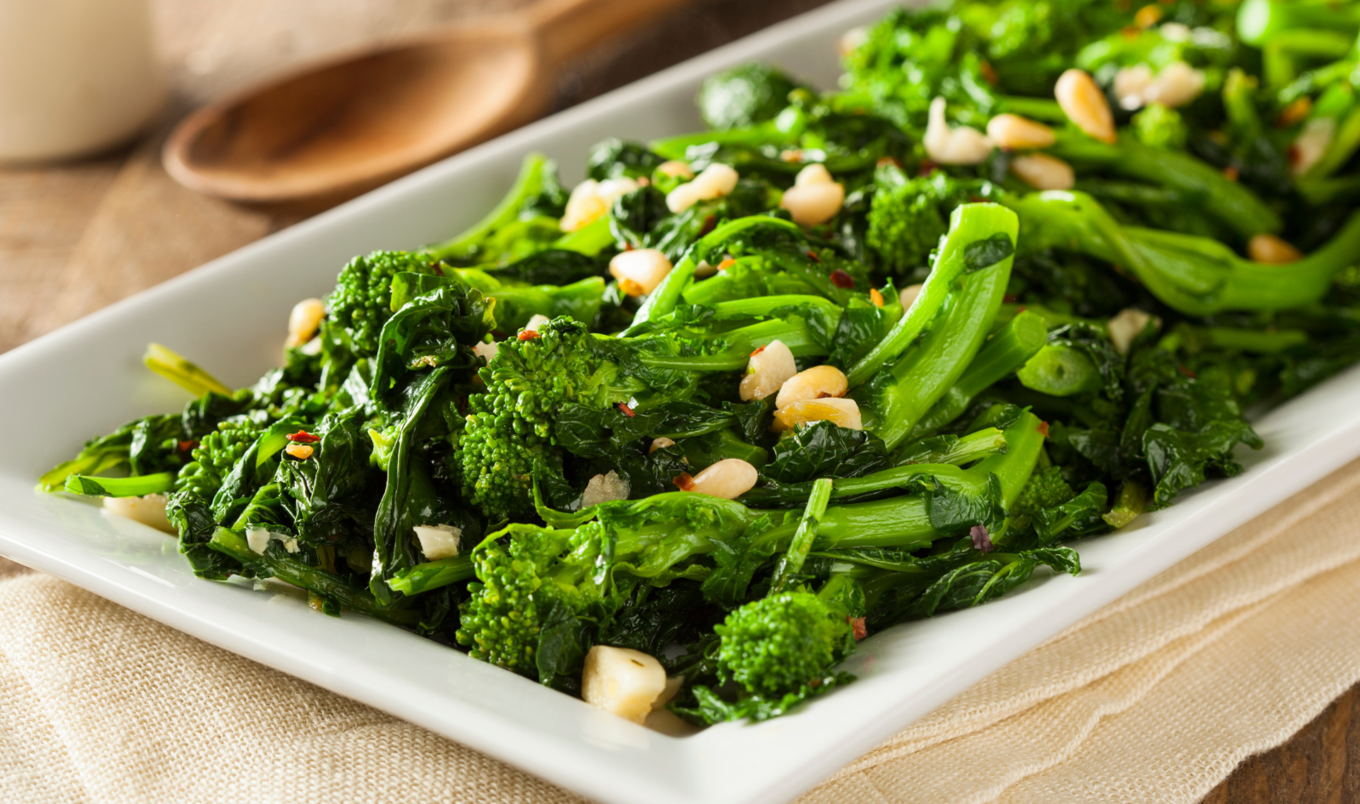


.jpg?sha=1491c255b49d3e03)